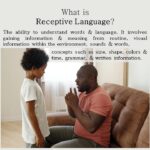Pre-Linguistic Skills
Pre-Linguistic Skills The foundation for learning and understanding language. Today on the blog we’ll be talking about pre-linguistic skills. More specifically, what they are and why they’re important. Let’s dive in! Pre-linguistic skills: a group of eleven skills that build on one another and form the foundation for learning and understanding language. Try to visualize the skills as a…










